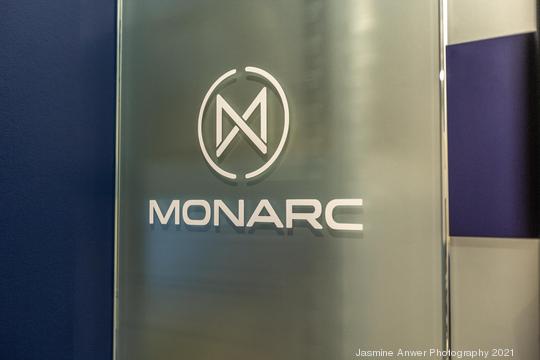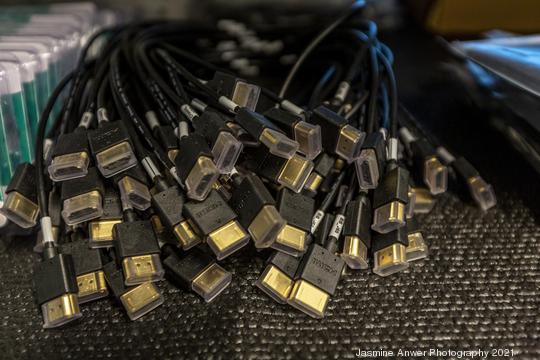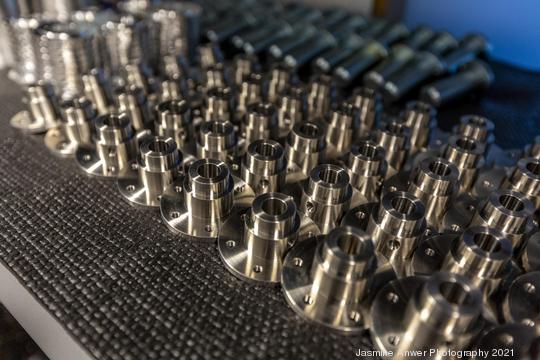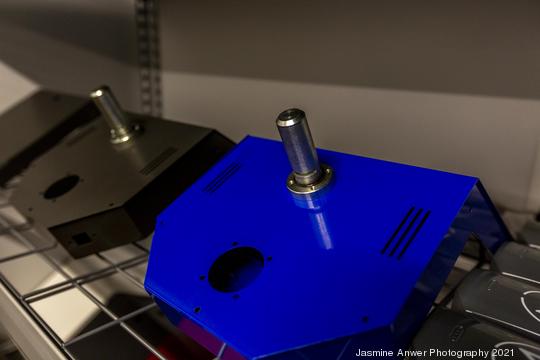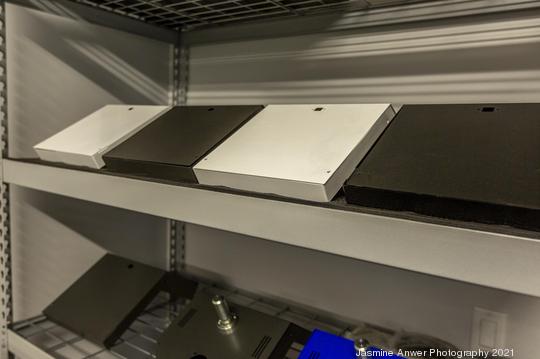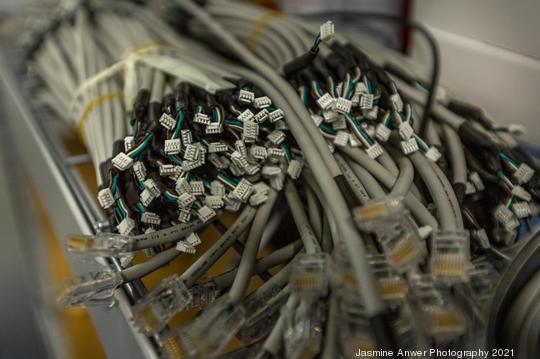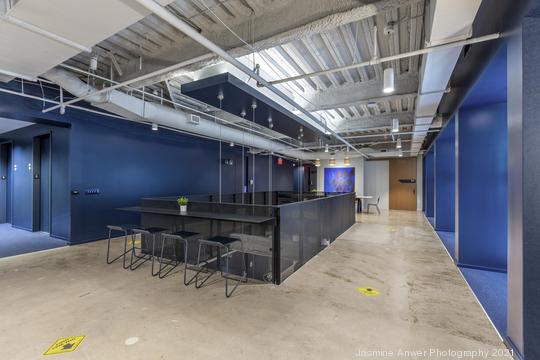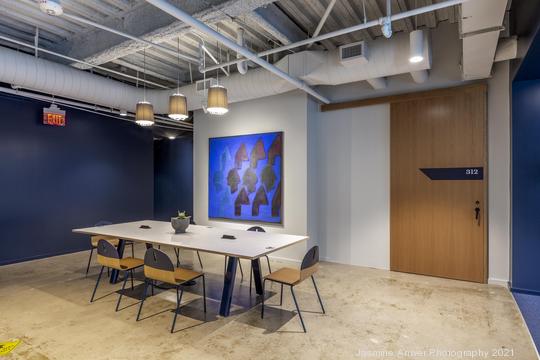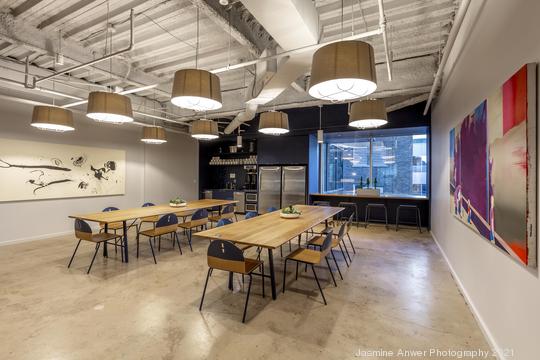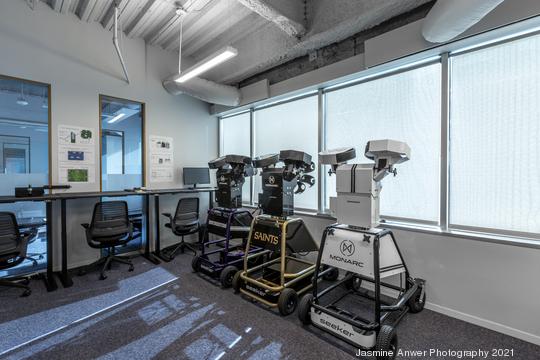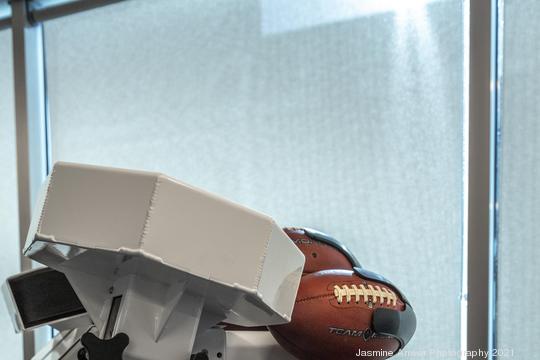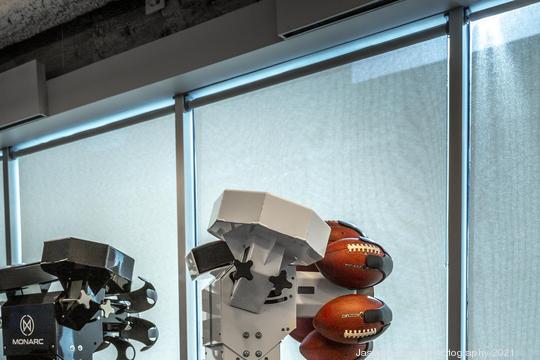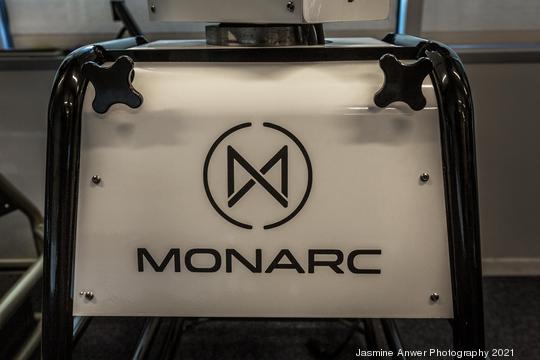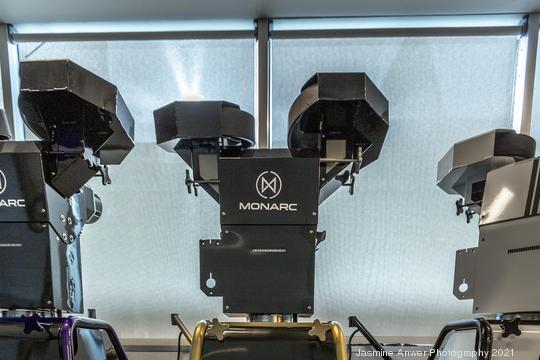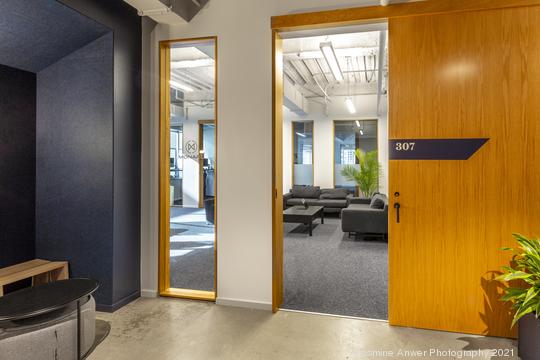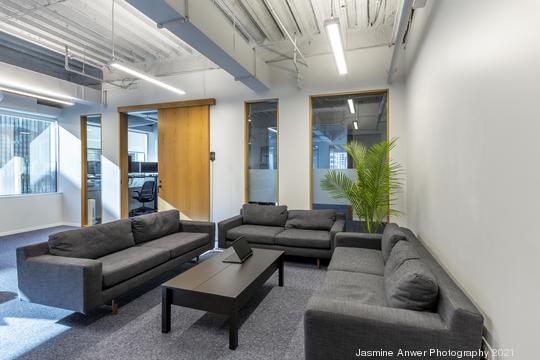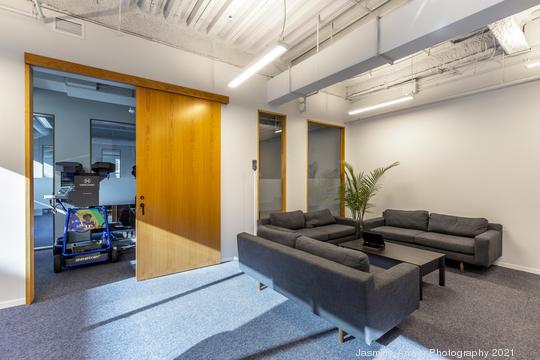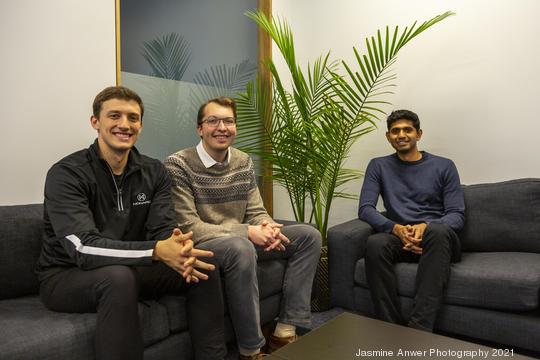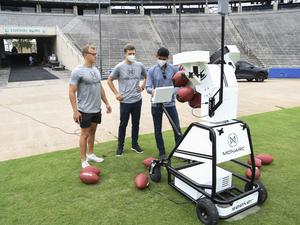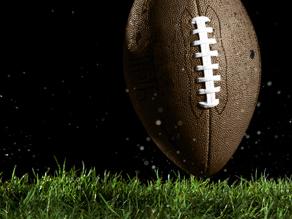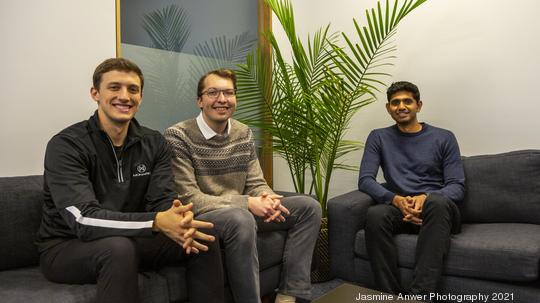
A couple of private offices in a coworking space are likely not the first place many would think would house a robotics manufacturing startup's headquarters. However, Monarc has set up shop in one to deliver robots and launch footballs across the U.S.
The Dallas-based robotic quarterback company moved into CENTRL Office at St. Paul Place downtown in mid-2019 with its five-person team. And from there, it has been building its robots, developing its software, and sometimes testing its tech as it's been gaining the attention of some big names in football.
“As we were talking about checking out the space, it wasn’t a very serious conversation. It was more, ‘Yeah, we’ll take a look, but we really like WeWork; it’s a good space,’” Bhargav Maganti, Monarc co-founder and co-CEO, told NTX Inno. “We came over here and realized it’s a lot more space, a lot easier for us to bring our (robot) in and out, and a better place for us to grow. This space was just very inviting for us to be here.”
Ironically, neither of Monarc’s co-founders and Co-CEOs Igor Karlicic and Maganti nor its software engineer Conner Early played football growing up. However, they know their way around tech, creating a robot that can deliver a consistent pass to a given point on the field and can also be used to track players, re-creating realistic drills.
“It’s a really interesting combination of technologies, and I think what makes all of this especially cool is that we do all of it in-house,” Karlicic said.
The Monarc team also knew what it was looking for in an office space and even made sure to measure the doors to check that their Seeker robots can be wheeled in and out from the two suites it occupies. Monarc uses one as a mini manufacturing facility, completing the wirings and finishing touches on the robots after receiving the metal parts from its manufacturing partners. The other, it uses to house its office and robots, making upgrades to the software and making sales.
SMU and other teams like LSU are one of Monarc’s customers, so it often tests upgrades to its software at the university’s athletic facilities. However, Maganti also has an electric generator and wheel the Seeker out to parks around DFW, often gathering a lot of attention from other park goers.
“It’s a different experience when you see some of that stuff and then actually engage with it, so seeing the Seeker by itself… everyone slows down, everyone whips out their phones. It’s really different from anything they’ve seen,” Karlicic said.
The company initially started as a passion project to help a group of University of Iowa students links a tracking device to a pitching machine. Karlicic and Maganti officially launched the company in 2015, quitting their jobs the next year to work full-time on the project in Iowa out of a single townhouse the whole team lived in. What eventually brought the Monarc team to Dallas was its access to shipping infrastructure. Not long after moving to the region, it reported raising $700,000 in a filing with the SEC.
Like nearly every company, Monarc and its offices have been affected by COVID-19. Currently, only Karlicic, Maganti and Early are in the office, while the sales team works remotely. However, Karlicic said the whole team would meet up outside to test the Seeker sometimes.
While at the start of the pandemic, Monarc saw several sales fall through, it has seen its customers change with the times. Many of the company’s sales are to athletic programs; during lockdowns, Monarc saw several individuals interested in the product, including players from teams like the Denver Broncos, Green Bay Packers and, of course, the Dallas Cowboys.
“COVID changed a lot of things for us. We didn’t anticipate selling to players as early as we did; we really wanted to work with our launch customers to finalize the software, implement their feedback and make it really user-friendly,” Karlicic said. “It just turns out that players, younger people in general, are naturally inclined to figure things out really quickly and make the most out of it. So, we actually ended up getting a ton of good feedback from players themselves.”
So far, the company has produced more than 15 Seeker units, which sell for about $50,000 and make dozens more. It also recently landed its first contract for an NFL team with the New Orleans Saints.
“What we’ve found out through the pandemic is the individual aspect, the ability to continue to get those reps in when you don’t have anyone else to throw them to you, that was very important, and we had a product that allowed those athletes to get those reps in,” Maganti said.
Looking ahead, the Monarc team plans to stay focused on football, making upgrades to the machines as it gets more customer feedback. And, for now, the company seems happy with their office space.
“I think one of the things that get all of us going is whenever we see an athlete using our device, we find the very pure emotion that comes out of them, the joy or the excitement or just the interest. Whenever we see that, we also share that excitement, and it also gets us to continue developing, continues going on to the next step,” Maganti said. “So I’d say for me,… even though I’ve never played football, seeing these athletes engage with our devices the way that they do is awesome.”
Check it out below.
Monarc Office Envy
You can also check out a photo gallery of the Seeker in action here.
